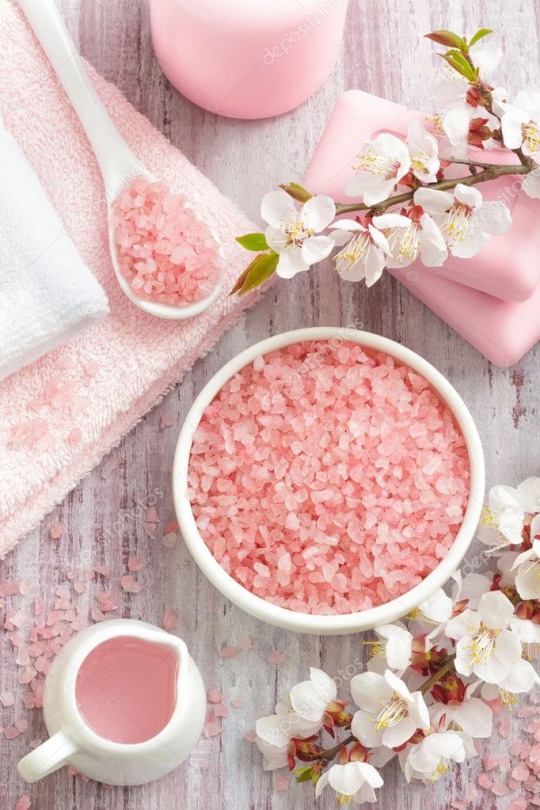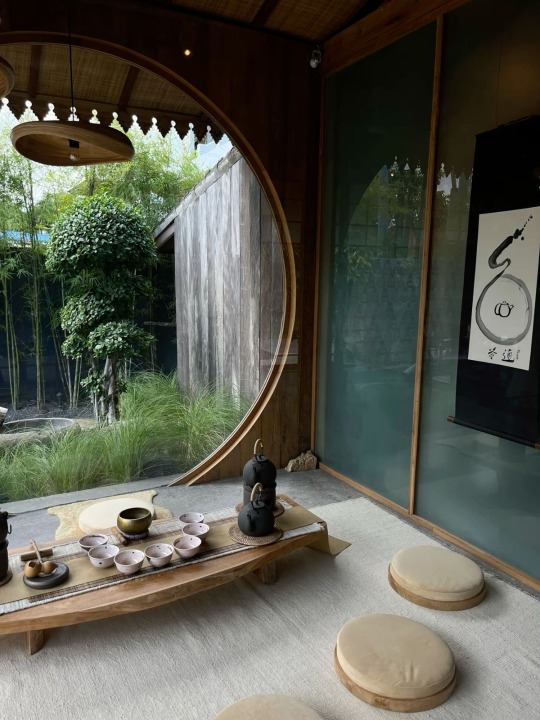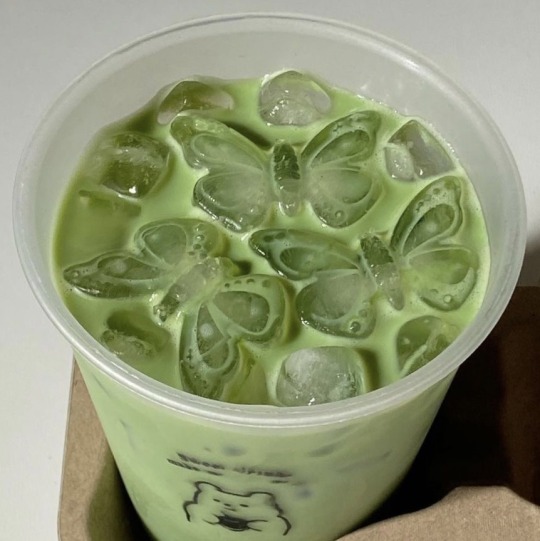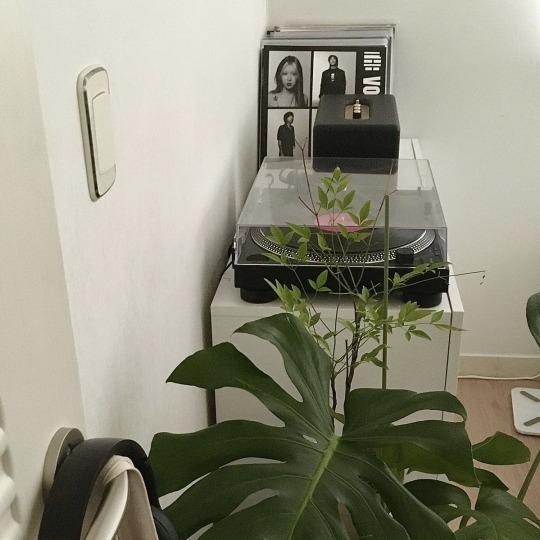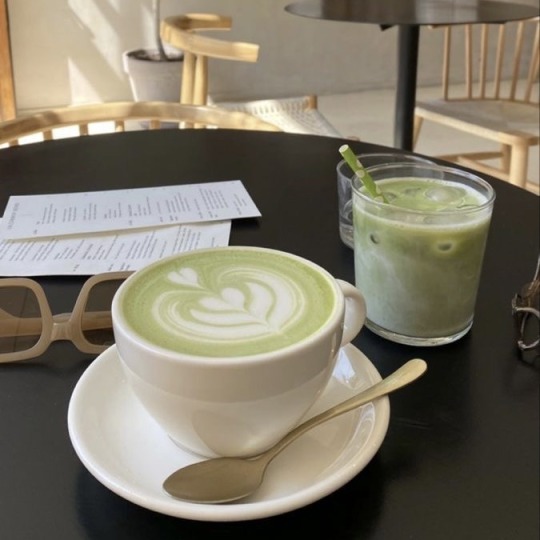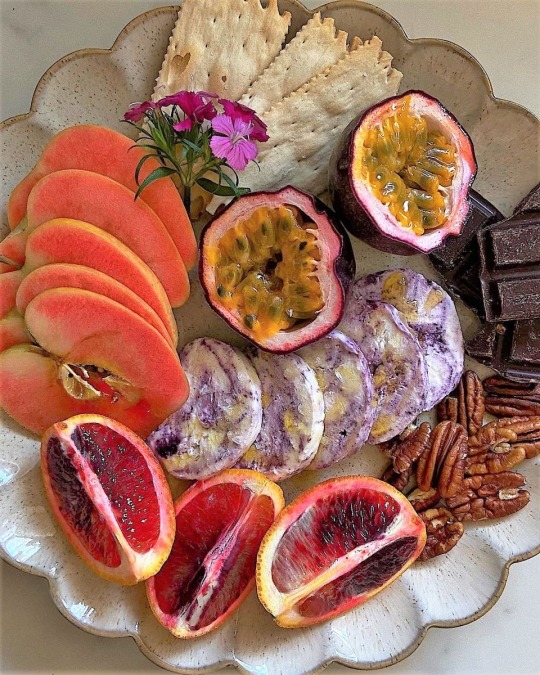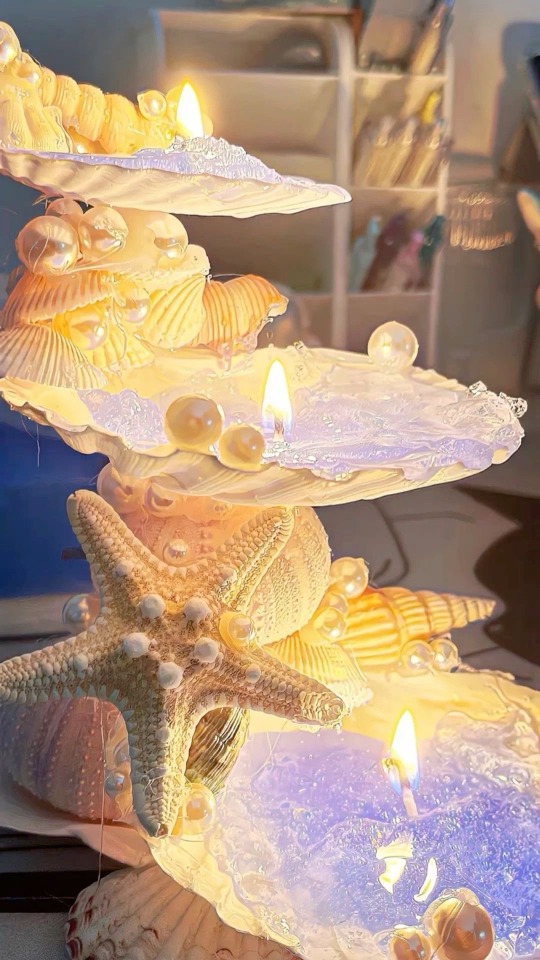Don't wanna be here? Send us removal request.
Text
The secret of being happy consists of knowing how to enjoy yourself—enjoy being at table, in bed, enjoy standing up, sitting down, enjoy the nearest ray of sunshine, the slightest bit of landscape: in other words, love everything. Thus it follows that to be happy you must already be so there's no bread without leavening.
Gustave Flaubert, from a notebook entry written c. September 1839
850 notes
·
View notes
Text

bonus if it’s To all the boys i’ve loved before
51 notes
·
View notes
Text


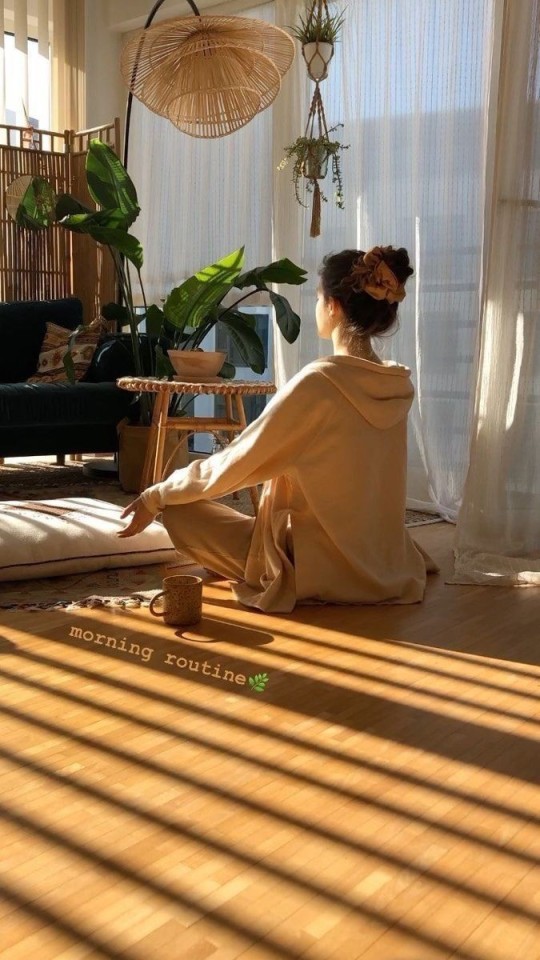

Loves, don't forget to center yourself. No matter how busy you get, always remember to take a moment to stop, breathe, and just be. Meditate for a few minutes, even for just 5, to ground yourself. Take this step back from your busy day-to-day life so that you can come back in full force.
997 notes
·
View notes
Text
Chinese folk religion: Festival of the Flowers
Today, March 27, 2021, is the traditional Chinese festival known as “Huachao’jie/花朝��”. This festival falls on the full moon of the Second Month in the Chinese Lunar Calendar. The festival used to be popular but has since fallen out of public knowledge in the last century, with only select rural communities and provinces still celebrating it. It has been experiencing a revival in recent years. Reason being the Goddess celebrated on this day is no longer seen as “significant” or “important” enough in people’s lives. This is the day that Huashen (花神) is celebrated and made offerings to. This is the time when the first spring flowers start to bloom in the wild and in orchards. She is also known by her name Huawang (花王), and Nu’yi (女夷).
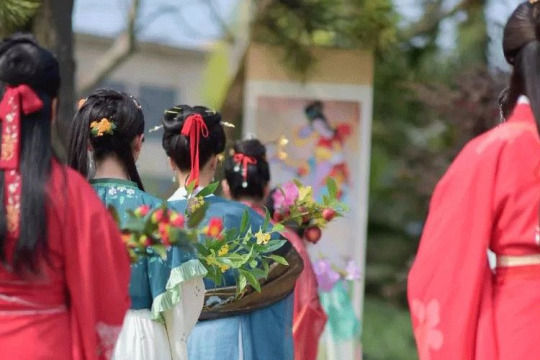
She is belived to be the Goddess who reawakens the plants and trees every spring. It is said she is responsible for “making all trees, grass, plants, and flowers under the heavens sprout, bloom, and grow”. She is attested in Huainanzi (old Chinese text from 193 B.C.), said to reawaken the plant life on Earth every spring with her drumming, dancing, and singing. The interesting thing is that in old texts she is mentioned to not only oversee the growth of plants, but also “the growth of beasts”. Meaning she reawakens the animals and wildlife every spring and makes them grow and reproduce. For this reason it’s still common to this day in certain regions for women to ask her for fertility. Just as she makes orchards bloom and grow, so may their families bloom and grow.
As blooming and flowering of plants are crucial to crops, she is also an important deity for farmers and orchards. Young women would walk trough flower orchards in groups and tie red ribbons onto the branches, asking Huashen to bring them blessings.
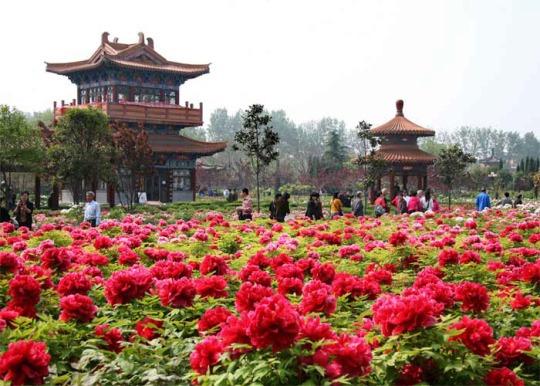
Altars can be set up in orchards or in groves, usually with a painting or small votive image of Huashen and offerings of flower cakes, candles, incense, and sweet liquor would be made to here. Ritual protocol dictates that it is taboo for men to lead the ceremony or to make the offerings. This is an event lead by women or female heads of the household. Sweet liquor are then to left out for her in the groves along with a portion of the cakes.
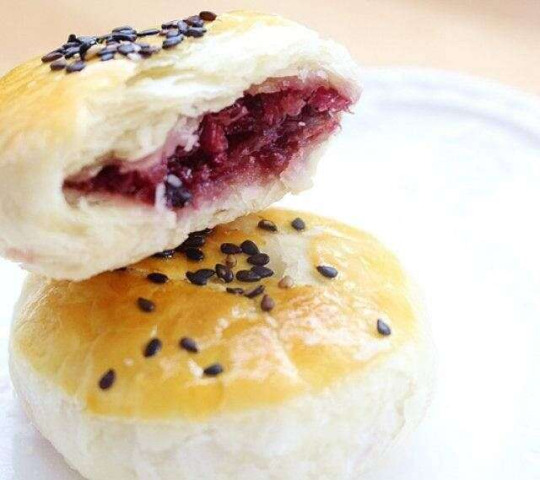
As mentioned, the traditional offering is a pastry called flower cake, or huagao/xianhuabing (花糕 / 鲜花饼). Depending on region, this is either a baked flaky pastry made with a filling made out of crushed fresh flower petals (usually roses), sugar, and lard, or a steamed leavened rice cake with crushed flowers mixed into the rice flour. They’re actually available at major Asian supermarkets, imported from China. If you can get your hands on some, do it and (if weather permits where you’re at) enjoy it under the sunshine by the flowers.
441 notes
·
View notes
Text
Diyu Part 1 of 2
As horrifying as all this will undoubtedly sound, it’s important to remember that the Chinese cultural concept of hell—along with any other such religious concepts—was created to instill in people values that were considered proper and conducive to society.
Diyu
In the concept what most widely know of as Hell (thanks Christianity) is a place where souls of sinners are condemned to eternal damnation until the second coming of Christ. The Chinese belief system however has a bit of a mixture of Mahayana Buddhism, Taoism and Chinese folk religion – of Hell or Diyu as it’s known is that it’s a place to punish and purify souls in preparations for reincarnation.
Influenced by Buddhist and Hinduism ideas of Naraka being absorbed into Chinese folk religion, the concept of the “10 courts of hell” was created it’s a hierarchical framework of the domain of ten judges or Magistrates of Hell and as legend has it, there were 12,800 hells located under the earth, but under Yama’s (I will come back to him) rule, this was reduced to 10, each overseen by a Dharmapala (wrathful deity). It was later in the Tang dynasty when the more popular concept of the “18 levels of hell” came to be, circulated by the Buddhist Sutra (scriptures containing the teachings of the Buddha) on Questions about Hell, which mentioned 134 worlds of hell that were then simplified to a total of 18 for convenience.
Now Yù Huáng / Yù Dì or the Jade Emperor is the ruler of Heaven – He rules over a heavenly court that’s populated by all the important gods of China. Śakra in Chinese Buddhist cosmology. In Daoist theology he is the assistant of Yuanshi Tianzun, who is one of the Three Pure Ones, the three primordial emanations of the Tao (Which is the principle of the underlying universe/existence /meaning of life, combining within itself the principles of yin and yang and what you must do to stay in harmony with the natural order.) In Vietnamese folk religion, he is called Ngọc Hoàng Thượng đế (or Ông Trời, Heavenly Lord). In Korean mythology he is known as Haneullim.
The Jade Emperor put the God Of Death in charge of Diyu. In Chinese mythology he’s known as Yan Wang or Yanluo – which is a shortened Chinese transliteration of the Sanskrit term Yama Rājā meaning King Yama (His most widely used name). In Korea Yimra, in Japan Yanluo / Emma.
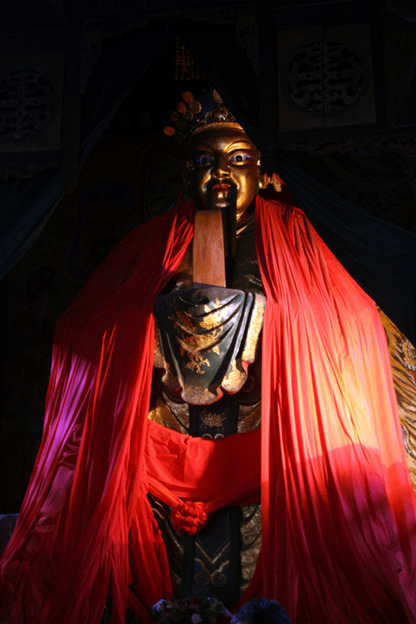
The period a soul spends in Diyu depends on the severity of their sins, and Yama is not only the ruler but also the final judge of all the dead in the Diyu. Yama always appears in a large male form with a scowling red face, bulging eyes and a long beard. He wears traditional robes and a crown on his head that usually bears the kanji 王, which stands for "king.". His minions include a judge who holds in his hands a brush and a book listing every soul and the allotted death date for every life and Ox-Head and Horse-Face, as the names suggest they both have the bodies of men topped with the heads of an ox and a horse, and respectively are the fearsome guardians of hell, who bring the newly dead, one by one, before Yama for judgement. Men or women with merit will be rewarded good future lives, or even revival in their previous life and get to pass through a realm of enjoyment in a region midway between the earth and the heaven of the gods, their version or Heaven. Men or women who committed misdeeds will be sentenced to torture and/or miserable future lives and must undergo a measure of punishment in Diyu, the nether world, situated somewhere in the southern region. After this time, they may return to Earth in new bodies.
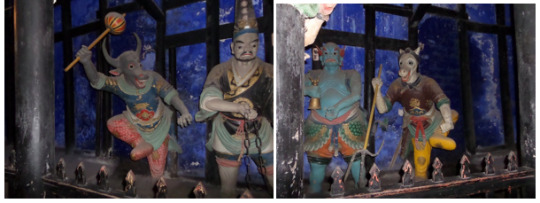
The souls of sinners can feel pain just like the living but cannot die from their ordeals. Their beings are simply restored back to their original state, for the torture to start all over again in a cycle of anguish.
Deceased souls upon entering Di Yu are greeted by Ox-Head (牛頭) and Horse-Face (馬面), the guardians of Diyu, as mentioned before these two are charged with the duty of capturing human souls that have reached the end of their earthly existence and bringing them before the court of Yama to be judged.
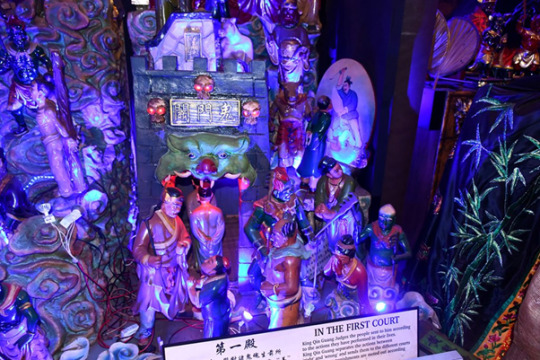
If a soul passes the stage of judgement and is deemed good enough to not be punished for their earthly deeds, they can head straight to being reincarnated again into the earthly cycle, or—in some rare cases—achieve enlightenment and not have to go through human life cycles again.
But the majority of souls will have something to repent for, and so are sent down to the 18 levels of Diyu, depending on what the sin is it dictates where they might go to spend their punishment before being able to move on.
(Locations of images will be discussed at the end)
East Hell
Hell of Tongue-ripping, where those who gossip and spread trouble with their words will repeatedly have their tongues ripped out.

Hell of Scissors, where those who destroy someone else’s marriage will have their fingers repeatedly cut off.
Hell of Trees of Knives, where those who sow discord amongst family members will be repeatedly hung from trees made of sharp knives.

Hell of Mirrors of Retribution, where those who have managed to escape punishment for their crimes while alive will be repeatedly shown their true horrific selves.
Hell of Steamers, where hypocrites and troublemakers will repeatedly be steamed “alive.”
Hell of Copper Pillars, where arsonists will be repeatedly chained to red-hot pillars of copper.

Hell of the Mountain of Knives, where those who have killed for pleasure or without good reason will repeatedly be made to climb a mountain made of sharp blades sticking out of it.

Hell of the Mountain of Ice, where adulterers, deceivers of elders, and schemers will be repeatedly left out on a barren mountain of ice to freeze.

Hell of the Cauldrons of Oil, where rapists, thieves, abusers, and false accusers will be repeatedly fried in vats of boiling oil.
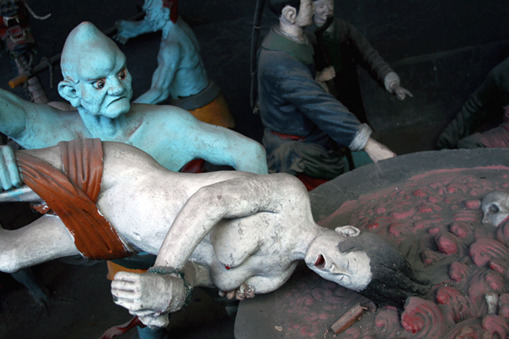
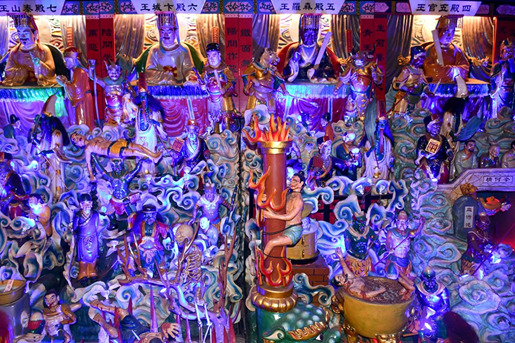
9 notes
·
View notes
Text
old-timey folk remedies (& folk magic?)
I've been neglecting this tumblr for awhile (TBH I forgot) But I'm back to my slow journey of reconnecting with my Chinese side of my ancestry and I got a treat for you all! Here are some old timey Chinese folk remedies.
TW: gore
The best part of chatting with your elderly members of your family is when they start spilling stuff from the past. I love it when my grandma and grandpa starts recounting folkloric shenanigans they did and the small folk remedies their parents and grandparents gave them. These remedies are all oral traditions, as it's the norm for most Chinese folk religion-related things. From a time when your average person didn't have access to a physician, doctor, or hospital. Or when the did, they couldn't afford to visit for non-urgent reasons.
A SMALL COLLECTION OF FOLK REMEDIES:
-TO REMEDY DIARRHEA: when you buy pomegranates, save the peelings and dry them under the sun. They can be simmered in water into a tea and given three times a day to those with an overactive bowel.
-TO GET RID OF WARTS: roll a blunt out of well dried mugwart leaves that was collected and hung on the front door during Duanwu Festival (dragon boat festival). Light the blunt and place it just close enough above the wart that you can feel the heat but not so close that it burns you. Make circular motion around the wart with the lit blunt while gently blowing on it. Do this when you wake up and before you go to bed. Repeat daily until your wart disappears. Collect the ashes of the blunt every time and rub it onto the wart.
-A SALVE FOR BURNS: obtain a dead newborn baby mouse, place it in a jar of sesame oil and seal it. Bury the jar in the earth near the hearth. Check on it often, and when the oil has become a putrid liquid, it is ready to be used to treat burns.
- TO HELP RECOVER FROM A FLU OR COLD: roast a tangerine, unpeeled, just until it is soft and hot. Eat that between meals and it shall help you recover fast.
-FOR CONSTIPATION: drink a shot of sesame oil. easy.
-FOR MIGRAINES & HEADACHES: rub tiger balm on your temples in a circular motions. You can put two slices of fresh daikon (the giant white asian radish) on your temples for 15 minutes.
-FOR FROST BITE: simmer dried eggplant stalks and leaves in some water and strain. Let it cool just a little and soak your frost-bitten feet or hands in it. Repeat daily and it should heal fast.
-FOR PSORIASIS: Mix some dried powdered orange peel or orange zest into some sesame oil. Use it as a salve on the affected area.
-FOR IBS OR STOMACH PROBLEMS: take 2 hawthorn berries, 3 dates, and 7 peppercorns and crush them all together. take it with a shot of vinegar.
50 notes
·
View notes
Text
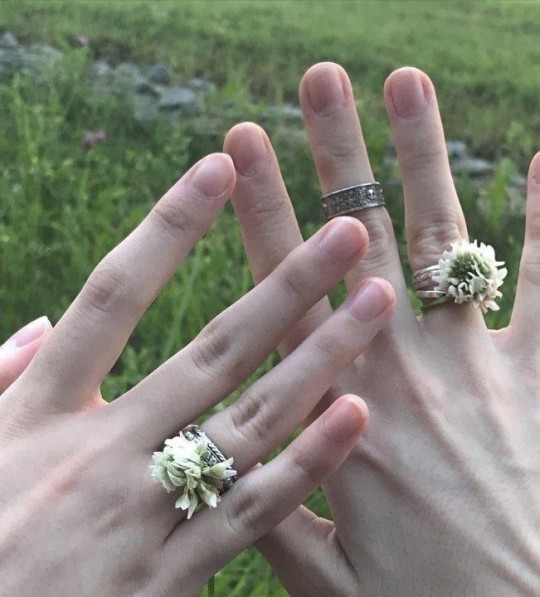

It gets sick sometimes to believe we are worthy of smiles. But you gotta "shhh" your mind, for it's such a trickster. Let it hurt a little, let yourself caress the depth of that wound, let yourself measure it with immense compassion, let yourself be happy!
Her Schrödinger's Cat, Tenth Insight
56 notes
·
View notes
Text
be busy. busy not checking messages. busy reading those books you never started or finished. busy having a good night of sleep. busy taking care of yourself and your skin. busy moving your body. busy helping your community. busy reflecting on your life and what you can improve. busy doing things aside from the capitalistic viewpoint of “productivity.” busy slowing down.

25K notes
·
View notes
Text








That girl energy because we are that girl
3K notes
·
View notes
Text
my weekday routine



7:30 am : begin morning routine
make bed
take meds
morning exercise & meditation
brush teeth
drink water
make & eat breakfast
prayer for studies
9:00 : do anything else needed to get ready for the day (dishes, start laundry, drink coffee, prepare desk, to-do list, etc.)
10:00 : school work & studying
12:00 : 20 minute break
12:20 : LSAT study session #1
2:20 : 20 minute break
2:40 : additional school work or productive brain break
4:00 LSAT study session #2
6:00 : closing prayer & begin evening routine
exercise
shower
Bible time
8:30 : skincare & reading
9:30 : begin wind-down (cut off electronics & social media, begin to slow the mind)
10:30 : bedtime
271 notes
·
View notes


